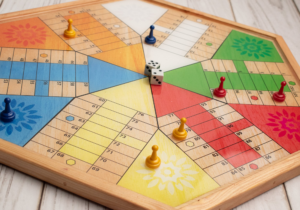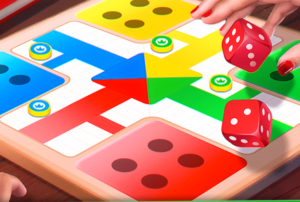In many classical board games, players often depend on luck; however, the best strategy for improving one’s chances of winning is mastering tactics. The basic rules of moving, assuming what the enemy does, and acting on the consequences of their decision are the only things that keep a match from being an easy game. Experienced players can turn a mere dice game into a tactical battleground based on intelligence and prediction. Moreover, the online ludo board game multiplayer USA is an interesting choice for online gamers seeking competitive fun and easy play against real-time players. Hence, a good plan remains a central part in the success of players who use it, as they tend to outperform those who rely solely on luck.
Master these Best Strategies for Winning Online Ludo Board Games
Ludo does not only involve rolling dice, but is also a game that requires strategy and planning. You need to be several moves ahead to be the board controller in the digital board game. Many people now play online Parchis and Ludo board game USA to connect with friends and family, as the games allow one to enjoy and engage with all their loved ones. So, when people can outsmart their opponents, that is what makes the difference between winning and losing.
- Keep All Your Pawns Moving: At the beginning, focusing on the homes of one of your pawns is quite easy, letting the others survive in the initial configuration. The first step you need to take with a six is to bring another pawn into the game. Nevertheless, having a larger number of pawns on the board means letting them have more options at every dice throw. With that degree of freedom, you can smoothly make arrangements in the changing situation on the field, as it may be, either to sidestep a pawn or to apportion it for a capture.
- Play the Safe Zone to Your Advantage: The squares on the board with stars bind your fortune. The security of your pawns is one hundred per cent at these spots. Aim to fall on safe ground always (particularly on a threatening enemy). When you are forced to decide between being able to move the pawn several steps ahead or playing it in a safe area, choose to be on the safe side. Any pawn you can defend is a good pawn, and to be safe, it is better not to take a chance and be sent back to the crossroads.
- Balance Attack and Defence: Although it is one of the main elements in the game to send back the opponent’s pawn to the home base, it is not the only time when this happens that you can win. You also need to protect your pieces. The second-best tactic is to form blockades with two of your pawns occupying a single square. This prevents a rival from gaining an advantage in that position, which slows their flow, and it protects your pawns. Timely blocking can frustrate your opponents and give you time to position your remaining pawns.
- Learn to Lose a Pawn: Sometimes, one will have to give up the pawn in favour of an even greater payoff. As an example, a move that would endanger your own position by enabling you to stress a pawn that is stationed too far back by an opponent would qualify as a worthwhile move. By capturing the piece of the opponent that they picked, you will be granted an extra turn, which in some cases is an essential advantage. To expedite the decision-making process, calculate beforehand the potential losses and gains that can be achieved from a particular move before taking the risk.
- See the Full Board: Do not get so gagged about your own pieces that you lose sight of what your rivals are doing. Watch their positions, be aware of their movements. As an example, when you notice that your opponent is more than a few spaces away, with their pawn, you are aware that one is probably intending to take you. You can vary your strategy as well; you may want to move to a safe spot, or you may switch which pawn you are moving. Observation will make you spot traps and opportunities that you would not usually get.
- Don’t Be Afraid to Block: It is a strong strategy to put two of your pawns upon the same square. This puts up a block that you or your enemies can never overcome, by any other pawn. It is an excellent method of confusing an opponent who is almost winning or has a strong position. Be clever over your blockades. Placing one well outside the home field of your opponent may be particularly useful, as it dictates that the opponent will have to go a longer way around, or risk a favourable roll to be able to spare you.
- The “Two Pawns Back” Trick: In case of having a pawn that is behind an opponent’s pawn and you are aware that you cannot get your pawn to a safe space, then think of two steps backwards. This may sound counterintuitive, though in case you have another pawn that can occupy its spot or can employ some other player, then it is a sound defensive move. You are essentially setting a trap, and you are also placing at risk that your opponent decides on whether it is worth pursuing you, given the danger of falling prey to another of your pieces.
- Prioritise the Finish Line: As much as the aim of taking all your pieces off the start zone is fundamental, the most important thing that should ever be considered is having a pawn into the home triangle. It is not the number of pawns on the board but in the centre that makes you win the game. When you find that you have a pawn near the finish line, at the time of rolling your dice and pushing it, never be distracted by a chance to attack an opponent when doing so can also hinder a pawn that is heading towards the goal directly.
Final Words
In conclusion, board games are not merely reliant on fortune; they involve various variables, such as strategising, observing one’s opponents’ actions, and deciding whether the move and the risk taken at the time are worth it. Players who blend the best strategies with patience typically perform the best, become more efficient in overcoming hurdles, and, therefore, win. Players of traditional board games have the advantage of the best online Parchis board games for iOS and Android USA, where they can enjoy seamless gaming and face thrilling challenges against players from all over the country. By mastering these skills, players can therefore transition from ordinary games to consistent victories.











